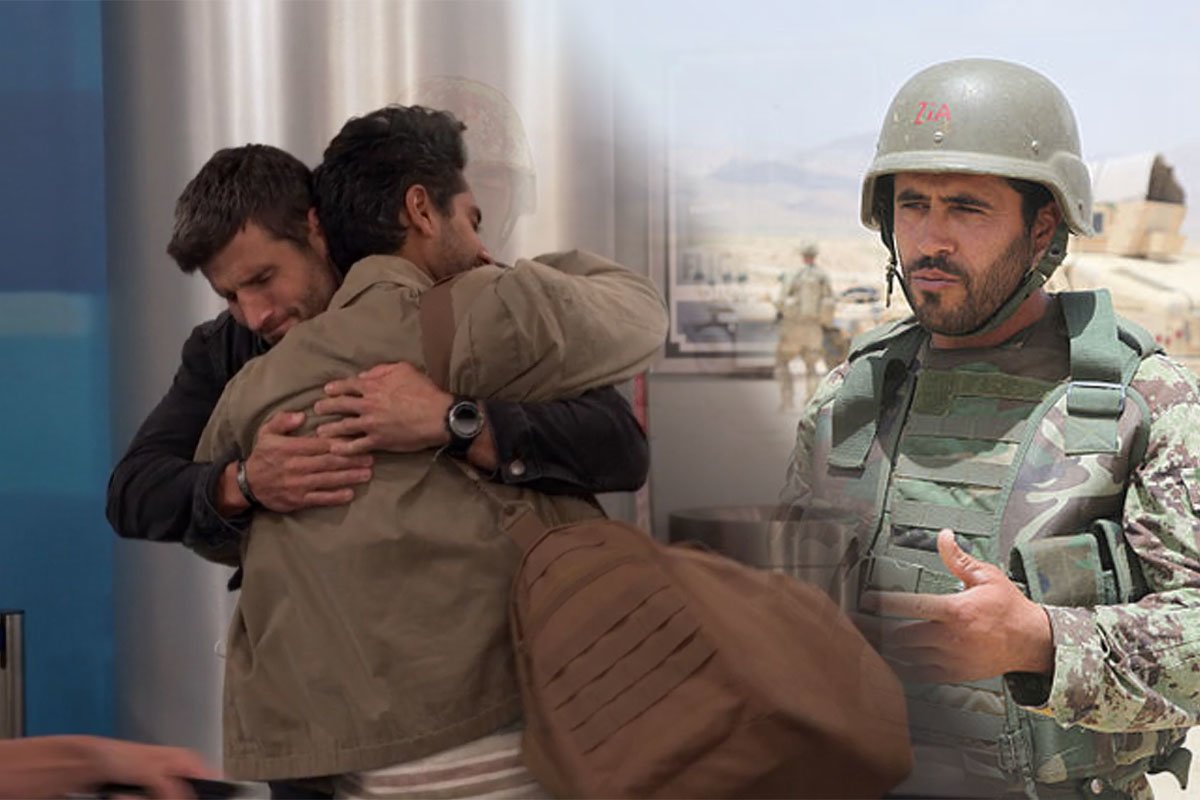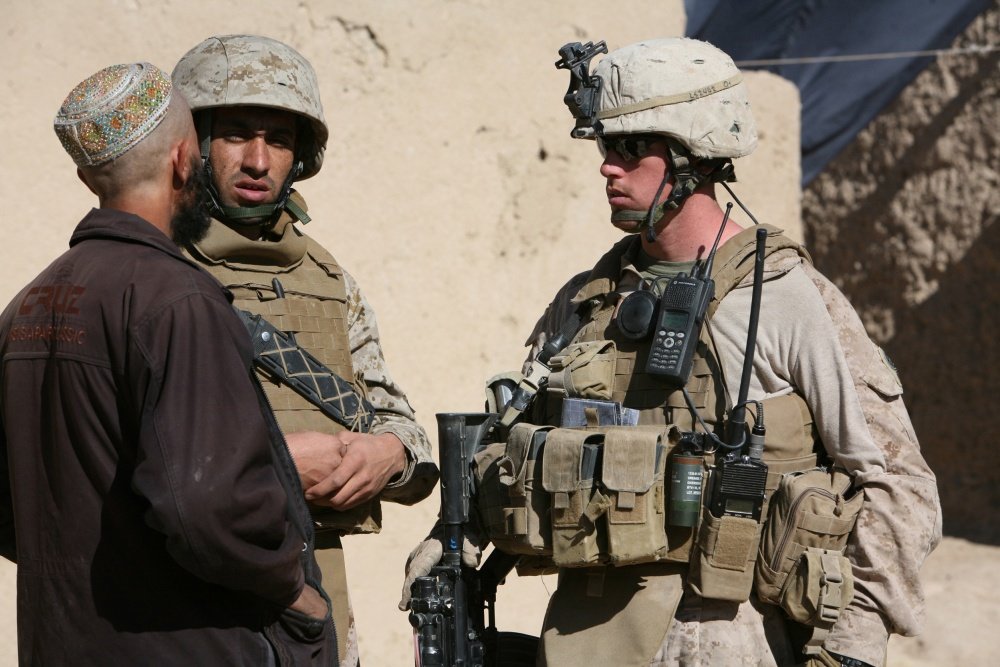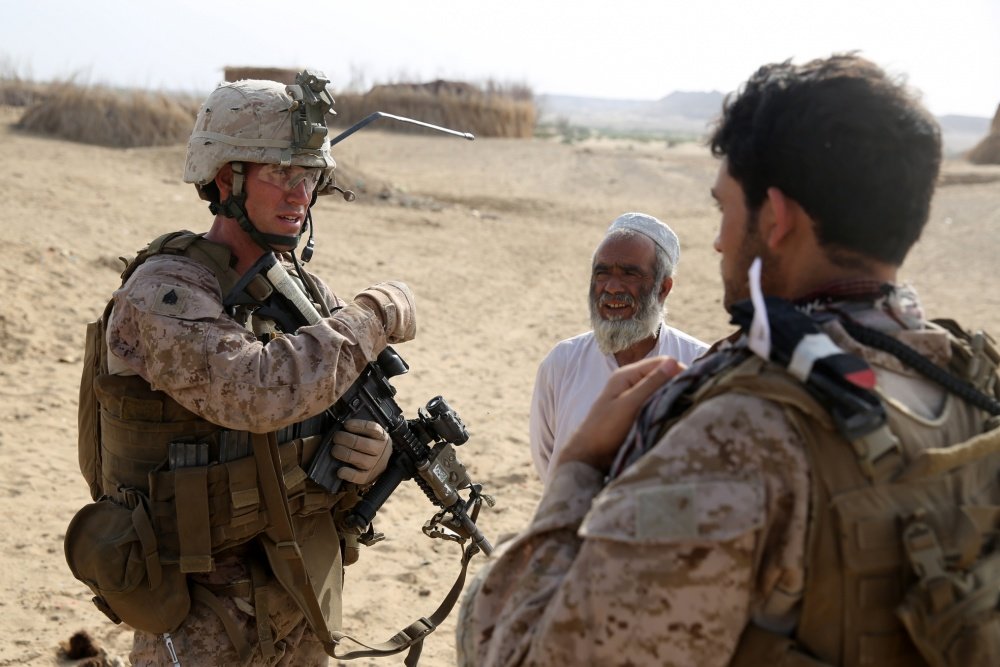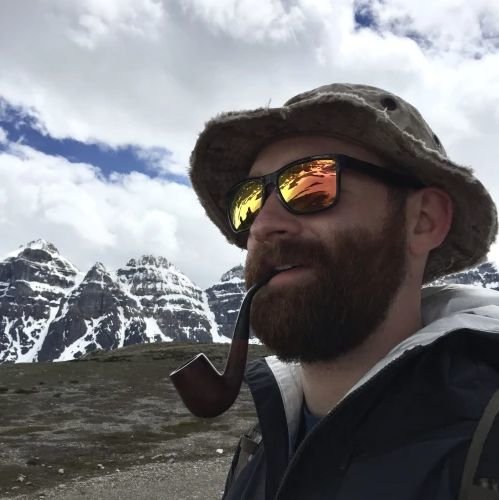‘United States of Al’ Attempts To Tackle a Topic Not Fit for Sitcom, Former Interpreter Weighs In

Screenshot from the pilot episode of United States of Al. Photo courtesy of DVIDS. Composite by Katie McCarthy/Coffee or Die Magazine.
Four episodes in, and the new CBS sitcom about military interpreters, United States of Al, falls short in its representation of an important story. The show centers around Awalmir, known simply as Al, an Afghan interpreter who immigrates to the United States with a Special Immigrant Visa (SIV). Al moves in with Riley, a US Marine who served with Al in Afghanistan. Cultures collide and cheesy jokes ensue.
The show attempts to shed light on the plight of interpreters who served with American forces in Iraq and Afghanistan. After two decades of war, many interpreters are now trying to emigrate from destabilized regions to the United States, a task many find to be exceptionally difficult.

The thousands of former interpreters being left behind are living with virtual targets on their backs, targets that encompass their families. The Taliban are expanding the scope of their influence across the country, violence is on the rise, and interpreters are living with an increased risk of being attacked. Already, more than 300 interpreters have been killed in retaliation for aiding coalition forces. Having risked their lives to voluntarily serve alongside American forces, many interpreters feel as if they’re being abandoned.
United States of Al admirably tries to push this important topic into the living rooms of those who may otherwise be unaware. Unfortunately, by being a major network sitcom, it fails to convey the gravity of the situation. Complete with a cringeworthy laugh track and PG-rated jokes, the show has a lighthearted nature that inadvertently gives the impression that the issue is not very serious.
The levity of each episode is not necessarily the fault of the show’s writers, producers, or actors — after all, they were tasked with creating a sitcom for the same audience as The Big Bang Theory. In the show’s pilot episode, Al is eager to experience American culture and asks what the Burning Man festival is. Riley attempts to explain, “Picture this: A bunch of Americans show up, pitch some tents, run around like crazy people, light everything on fire, and then leave.” Al delivers the flat punchline, “Are you trying to make me homesick?” Cue the pre-recorded laugh track.
The four episodes that have already aired are brimming with clichés. Riley, now home and out of the service, is rarely seen without a beer in his hand, his marriage has failed, and he cannot assimilate back into society. “I’m not good at anything over here,” Riley professes, encapsulating every bad trope about combat veterans. Meanwhile, Al unleashes a never-ending stream of Afghan customs, albeit in an inauthentic Iranian dialect of Pashto, for the comedic benefit of an audience apparently void of a sense of humor.
In episode three, Al is reduced to a mumbling caricature who fails his driving test because the evaluator is wearing shorts. Her exposed knees apparently render him too sexually distracted to avoid immediately crashing the vehicle. These shallow representations of both veterans and interpreters strip away the human complexity of the real people the characters are based on. The show ultimately diminishes the true struggle interpreters endure.
Effectively telling the story of Afghan interpreters adjusting to life in America would have been better suited for a network like HBO, where realism takes precedence over FCC Parental Guidelines. Despite all of its shortcomings, however, United States of Al is at least forcing an otherwise largely ignored issue into popular conversation.

No One Left Behind
Coffee or Die Magazine sat down with Ahmadullah Sediqi, a former interpreter who spent five years serving with US forces in Afghanistan. Sediqi emigrated from Afghanistan in 2014 and recently earned his MBA from the University of Houston. He explained how the show is important simply for the fact it is exposing people to the issue.
“The topic needs to be broadcasted internationally,” Sediqi said, adding that his major qualm with the show is how the jokes inadvertently make light of the immigration process. “It is hard, not playful. Families are still over there.”
He further emphasized that interpreters served all coalition forces, including Canada, Australia, and Italy, and that those nations also have a responsibility to aid their former interpreters.
Sediqi described the difficulties he faced when he was first given an SIV and the culture shock of going from Kabul to Houston. “I had seen movies and stuff, but it was still a shock,” he said. He didn’t know anybody, or even how to use the public transportation he relied upon. Sediqi now works for No One Left Behind, a nonprofit that assists in the immigration of former interpreters to the United States in an effort to ease the transition of interpreter immigrants.

In 2020 alone the group helped 636 Special Immigrant Visa families, stretching across 20 states. They help arrange greeters at the airport, assist in finding employment and lodging, and advocate on behalf of interpreters still stranded overseas.
“We don’t want our Afghan brothers to have to go through what we went through,” Sediqi said.”They need an Afghan to welcome them, to give them food for the first week, food they are familiar with. Teach them how to drive, speak English, and get used to the culture. Help build resumes. Passport renewals.”
Despite its tremendous accomplishments last year, No One Left Behind is quick to point out that for every family it helps, there are four more waiting. In order to help the interpreters still living in Iraq and Afghanistan, exposure generated from a show like United States of Al plays a critical role, even if it fails to fully convey the seriousness of the issue.
Sediqi elaborated that despite the show’s sometimes inaccurate portrayal of immigration and assimilation, he is overall pleased people are at least trying to highlight the issue. “I want people to know my story, that’s what I want. The misrepresentations are minor issues.” A show with such noble intentions is ultimately hindered by being forced to fit into a prime-time sitcom format. But while the story of interpreters being told in the form of a sitcom is perhaps not the appropriate means, the exposure generated by United States of Al is a small victory for the cause.
Read Next: The Road Less Traveled: Wali Tasleem’s Journey From Afghan Commando to Successful American

Mac Caltrider is a senior staff writer for Coffee or Die Magazine. He served in the US Marine Corps and is a former police officer. Caltrider earned his bachelor’s degree in history and now reads anything he can get his hands on. He is also the creator of Pipes & Pages, a site intended to increase readership among enlisted troops. Caltrider spends most of his time reading, writing, and waging a one-man war against premature hair loss.
BRCC and Bad Moon Print Press team up for an exclusive, limited-edition T-shirt design!
BRCC partners with Team Room Design for an exclusive T-shirt release!
Thirty Seconds Out has partnered with BRCC for an exclusive shirt design invoking the God of Winter.
Lucas O'Hara of Grizzly Forge has teamed up with BRCC for a badass, exclusive Shirt Club T-shirt design featuring his most popular knife and tiomahawk.
Coffee or Die sits down with one of the graphic designers behind Black Rifle Coffee's signature look and vibe.
Biden will award the Medal of Honor to a Vietnam War Army helicopter pilot who risked his life to save a reconnaissance team from almost certain death.
Ever wonder how much Jack Mandaville would f*ck sh*t up if he went back in time? The American Revolution didn't even see him coming.
A nearly 200-year-old West Point time capsule that at first appeared to yield little more than dust contains hidden treasure, the US Military Academy said.












